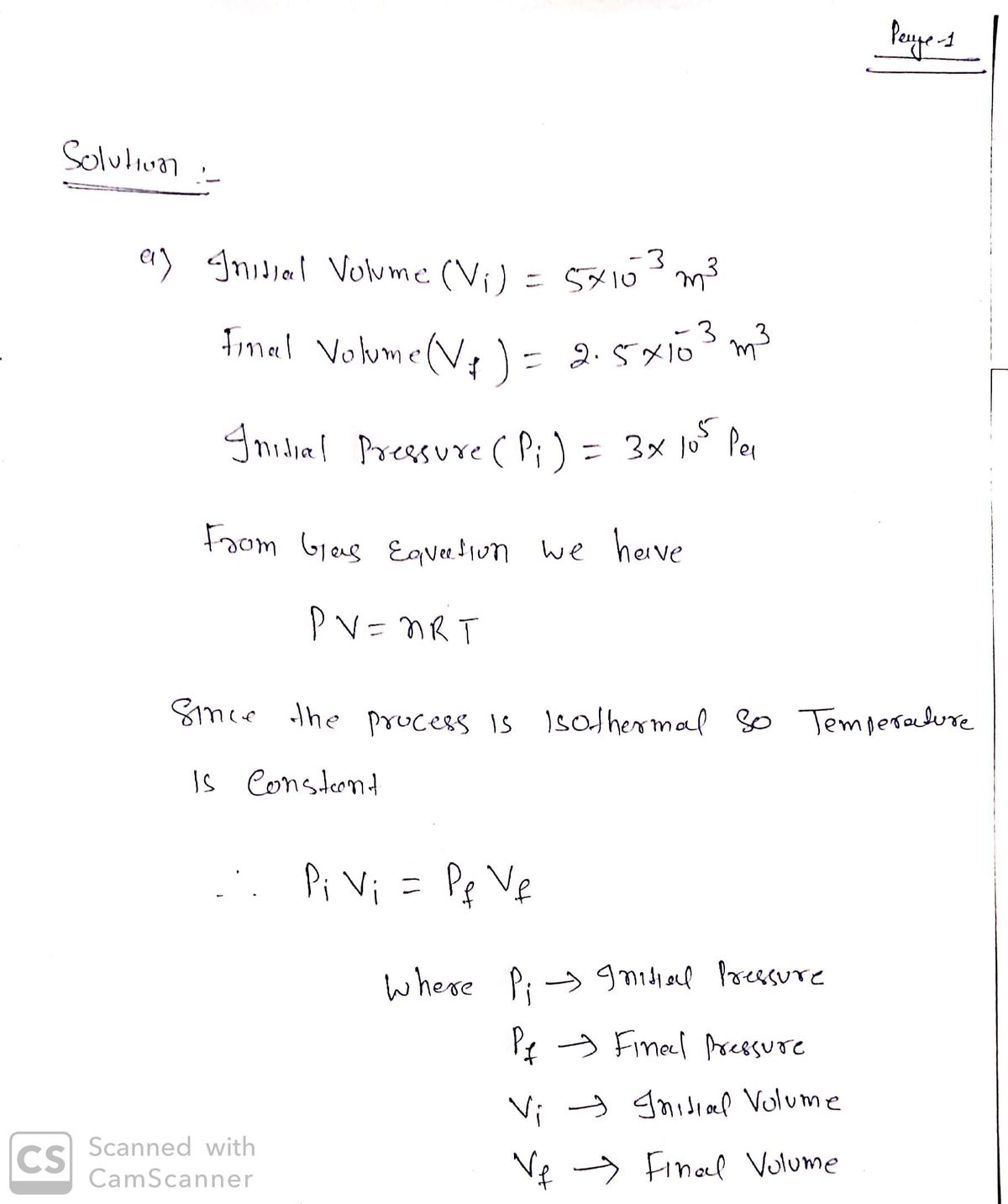*** 30. An isothermal process is one in which a system remains at constant temperature while its other parameters change. Isothermal processes typically occur when the system is in ther- mal contact with a heat reservoir at constant temperature (like the air in a large room) that can absorb or supply heat to the system in question. a) If a gas is compressed isothermally from an initial 5 x 10-3 m³ volume and 3 × 10° Pa pressure to a final volume of 2.5 x 10-³ m², what will be its final pressure? b) Will the internal energy of the gas change during an isothermal process? Explain. c) If it required 104 J of work to compress the gas in part (a), will heat have been added to the gas or lost from it, and by what amount?
*** 30. An isothermal process is one in which a system remains at constant temperature while its other parameters change. Isothermal processes typically occur when the system is in ther- mal contact with a heat reservoir at constant temperature (like the air in a large room) that can absorb or supply heat to the system in question. a) If a gas is compressed isothermally from an initial 5 x 10-3 m³ volume and 3 × 10° Pa pressure to a final volume of 2.5 x 10-³ m², what will be its final pressure? b) Will the internal energy of the gas change during an isothermal process? Explain. c) If it required 104 J of work to compress the gas in part (a), will heat have been added to the gas or lost from it, and by what amount?
Related questions
Question

Transcribed Image Text:*** 30. An isothermal process is one in which a system remains at constant temperature while
its other parameters change. Isothermal processes typically occur when the system is in ther-
mal contact with a heat reservoir at constant temperature (like the air in a large room) that
can absorb or supply heat to the system in question.
a) If a gas is compressed isothermally from an initial 5 x 10-3 m³ volume and 3 × 105 Pa
pressure to a final volume of 2.5 × 10-³ m³, what will be its final pressure?
b) Will the internal energy of the gas change during an isothermal process? Explain.
c) If it required 10ª J of work to compress the gas in part (a), will heat have been added
to the gas or lost from it, and by what amount?
Expert Solution
Step 1

Trending now
This is a popular solution!
Step by step
Solved in 3 steps with 3 images
